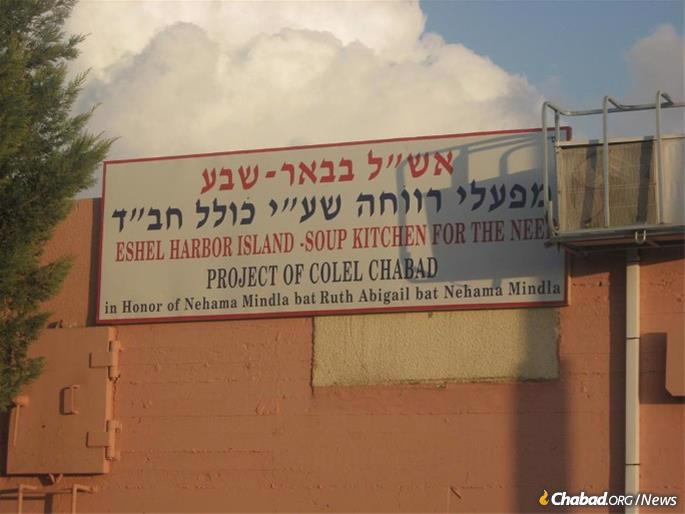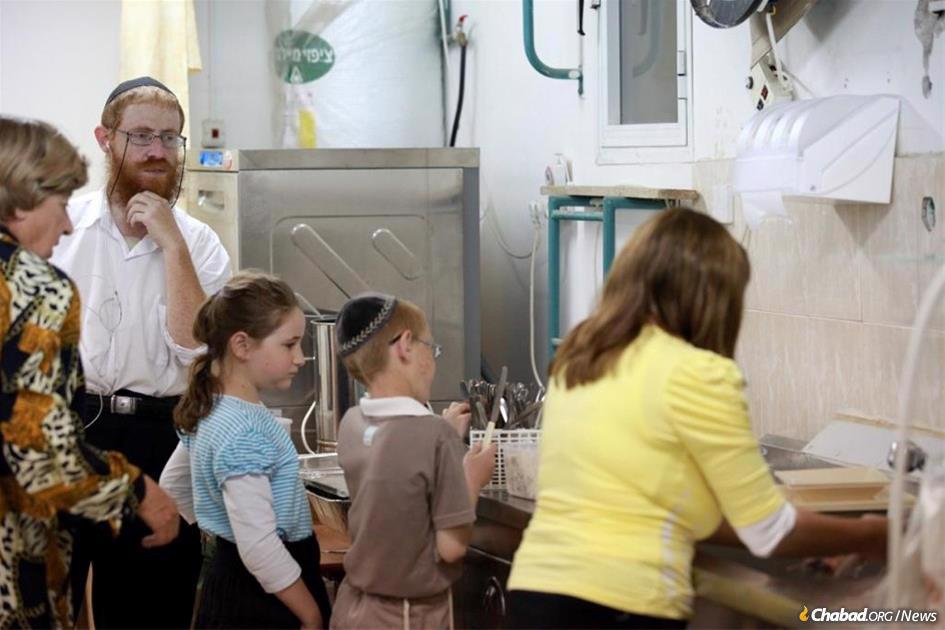Rabbi Moshe Krivitski, a Chabad-Lubavitch emissary in the Nachal Beka neighborhood of Beersheva who ran the city’s Colel Chabad soup kitchen for more than 10 years, was among the four victims of a terrorist attack in Israel on Tuesday morning. He leaves behind his wife, Miriam, and their four children.
Born in Soviet Minsk, Belarus, Krivitski was drawn to Torah observance when he met Rabbi Yosef Gruzman, the founder of Chabad-Lubavitch of Belarus. From Minsk, he went to Kishinev, Moldova, where he studied in the yeshivah founded by the late Chabad emissary there Rabbi Zalman Abelsky, who had a deep impact on him.
After studying with Chabad in Moldova, he immigrated to Israel and was educated at Yeshivas Tomchei Tmimim in Nachlas Har Chabad, a suburb of Kiryat Malachi, which had been founded by Rabbi Mordechai Kozliner after he emigrated from the Soviet Union.
As a young rabbi, Krivitski devoted himself to caring for and learning from the renowned Chassid, Rabbi Zalman Leib Estulin, who stood on the front lines of preserving Torah study and practice in the former Soviet Union and was known both there, and later in Bnei Brak, Israel, for his extraordinary Torah scholarship, piety and humility.
In recent years, Krivitski served as director of Colel Chabad—Israel’s oldest continuously operating charity—in Beersheva and oversaw the day-to-day management of its soup kitchen, in addition to the decade he served as a Chabad emissary and rabbi in the Nachal Beka neighborhood in the city.
“He was the gentlest of souls whose entire life was about giving to others,” said Rabbi Sholom Duchman, director of Colel Chabad. “Each and every day, he would manage Colel Chabad’s local food-distribution service for the needy in Beersheva, distributing thousands of meals over the years, going above and beyond to serve the hardest-hit in his community during Covid.”
“He was a modest, unassuming person,” said Rabbi Zalman Gorelik, director of Chabad of Beersheva. “He was beloved by G‑d and by man, and was completely devoted to the community.”
Duchman called Krivitski “one of the kindest and most compassionate souls,” and prayed that his charitable work with Israel's most vulnerable would bring a measure of comfort to his family and his community.

Deadliest Attack Since 2016
According to eyewitnesses, the lone assailant intentionally rammed into Krivitsky, who was riding his bicycle, as the terrorist drove away from a gas station near a large shopping center, where he had stabbed three people. He then jumped from his vehicle and ran to two other areas, where he continued to slash at passersby. He was shot and killed by a bus driver and another Israeli civilian at the scene. Also among the victims was Doris Yahbas, a resident of Moshav Gilat and a mother of three; Laura Yitzhak, 43, also mother of three; and Menahem Yehezkel, a 67-year-old resident of Beersheva.
The attacker was a resident of the Bedouin town of Houra. He was released from an Israeli prison in 2019 and known to have been a sympathizer of the Islamic State, and had unsuccessfully tried to join them in Syria.
The rampage was the deadliest attack on Israeli civilians since June 2016, when two terrorists opened fire at Tel Aviv’s Sarona Market, killing four and wounding 16.
Rabbi Moshe Krivitski is survived by his wife, Miriam, and their four children. He is also survived by his father. The funeral is scheduled to take place at the Beersheva Jewish community cemetery at 7 p.m. on Wednesday, March 23.










Join the Discussion